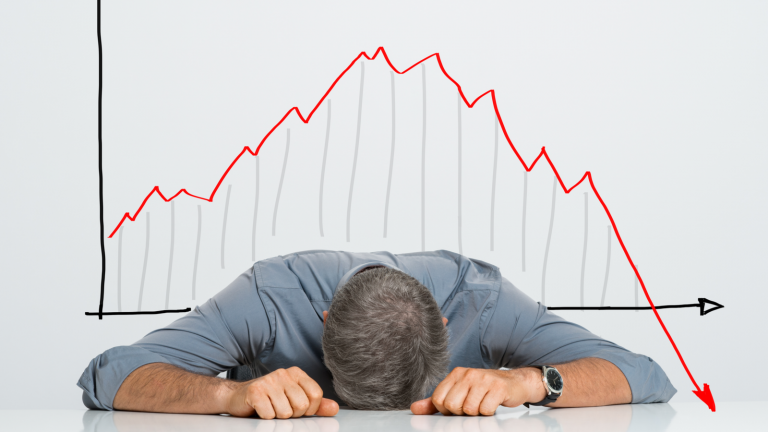Stock market crashes are many investors’ worst nightmare — or they’re a dream come true if you have the right approach. Investors can view a crash as a chance to go bargain hunting, and they should take steps ahead of time to prepare for this eventuality.
When I give you the years 1929, 1987, 2008 and 2020, what’s the first thing that pops into your mind? Seasoned investors should immediately think of the collapses that happened in the stock market during those years.
Sudden stock market drawdowns of 20%, 30%, 50% or more can be scary if you’re not prepared. Knowing what to expect, and how to capitalize on the opportunities involved, can help investors make the most of a very challenging situation.
With all of that in mind, let’s explore the three steps you need to take to protect your investments when the market crashes
1. Stay Calm, but Be Aware of Macro Conditions
Stocks fall for many different reasons, but there’s a common theme: a negative surprise. In 2008, it was the collapse of the richly valued housing market. 2020, unfortunately, was the year when the Covid-19 pandemic came to the U.S.
Some folks might posit that a stock market crash is bound to happen every 10 years or so. However, crashes don’t happen because they’re “due.” There’s typically going to be a negative shock or “black swan event” to cause panic in the stock market.
You might have heard that high U.S. inflation will be the next shock event to cause a crash in the financial markets. This might or might not be true. Stocks have already fallen from their peak prices, and could enter into a full-blown crash this year. So, it’s a good idea to consider how you’d respond.
2. Look for Opportunities
History shows that buying when most investors are complacent, and selling when investors are panicking, is a recipe for disaster. Famous investors like Warren Buffett instead choose to flip the script, and buy during times of panic instead of selling.
As the old saying goes, buy when there’s “blood on the streets.” Think about the companies you’ve wanted to invest in, but the share prices were too high. During a stock market crash, those prices often go down to much more attractive levels.
Hence, the best strategy is to view stock market crashes as opportunities rather than as problems. Focus your attention on stocks with comparatively low valuation metrics, such as price-to-earnings ratio and price-to-sales ratio. When these metrics are unusually low for any given company, you can thank the market for handing you a rare bargain.
3. Extend Your Time Frame
What if you already owned stocks and the market collapses? Rather than panic-sell your stocks, you can choose to extend your investment time frame. This means holding on to your stocks if they represent great companies, and let the passage of time heal the wounds.
And time does tend to heal wounds, at least when it comes to great companies. This is why the stock market eventually recovered after the 1929, 1987, 2008 and 2020 crashes. Solid companies will prove their resiliency, given enough time.
Whether you believe that stocks are going to crash or not, it’s wise to prepare ahead of time. You can do this by making a list of great companies that you’d like to invest in. Then, list the share prices at which you’d like to buy their stocks if a crash happens.
And if you get caught holding stocks while a full-on stock market crash happens, you don’t have to panic. The idea is to be invested in solid companies and to have a long enough time frame. If you follow those guidelines, you’ll probably be all right in the end.
When Will the Stock Market Recover?
There’s no crystal ball to let you know exactly how long it will take the stock market to recover, unfortunately. Really, though, the timing doesn’t matter so much if you’ve followed the three steps listed above.
Just know that all previous stock market crashes were temporary, even if they were scary at the time. Many traders needlessly dumped their stock holdings near the bottom of the cycle. Meanwhile, Warren Buffett and other patient investors picked up stocks at bargain-bin prices.
For what it’s worth, it’s practically assured that the stock market will recover at some point. In the meantime, feel free to build your wish list — and, when your favorite companies’ stocks get down to an irresistible price point, make a move and turn that crash into cash.
On the date of publication, David Moadel did not have (either directly or indirectly) any positions in the securities mentioned in this article. The opinions expressed in this article are those of the writer, subject to the InvestorPlace.com Publishing Guidelines.

